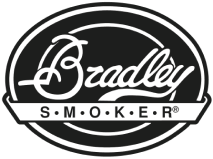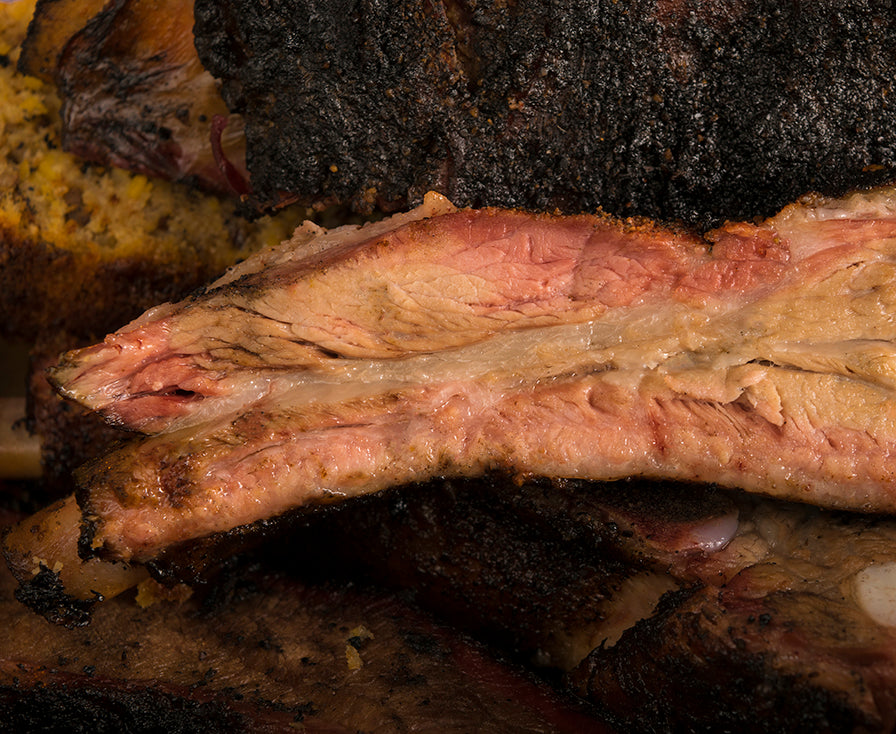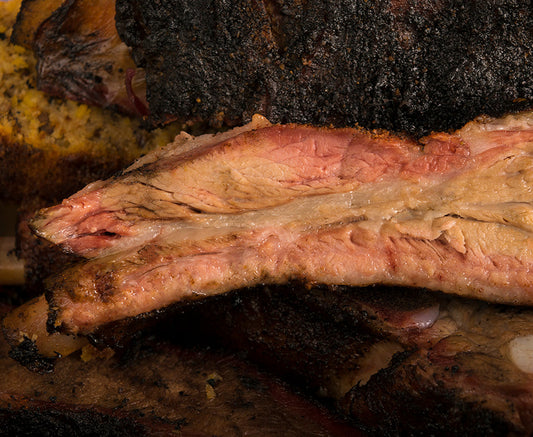In the world of smoking foods, there’s obviously plenty of smoke — but there’s often a lot of hot air, too. And here at Bradley Smoker, we wanted to take a little time to clear the air and dispel a few of the most commonly heard myths related to smoking your foods.
Read on to get the facts from the pros at Bradley Smoker regarding some of the most common misconceptions about smoking foods:
MYTH: A smoke ring is a sign of good barbecue.
FACT: The smoke ring is evidence that the meat has absorbed large amounts of NO2 (or nitrogen dioxide). This is a colorless, odorless and tasteless chemical discharged from all carbon-based fuels (including wood) when burned at high temperature. NO2 is cancerous and toxic — and it should not be associated with food cooking at all.
Avoiding NO2 in your smoke is easy. Do not cook or smoke at high temperatures. Do not let your wood source burn down to ash. And always cook your food with an open flame with wood or charcoal.
Further, let’s call the smoke ring what it really is: a chemical ring.
MYTH: The stall is caused by collagen (or protein, or fat) in the meat.
FACT: The stall is common when cooking/smoking at low temperatures for long periods. What happens is the meat stops absorbing heat — hence, it stops cooking through. This happens when the outside “crust” of the meat gets seared on the outside, forming an insulated cover that prevents the heat from getting into the internal areas of the meat.
To prevent the stall, let your meat (large portions like brisket or pork shoulders) rest on the counter (allow it to get close to room temperature) prior to starting the smoking/cooking process. The meat will cook evenly, and it is much easier to time the smoking/cooking process completion.
If your protein does go into a stall, you have two options:
- Put the meat into a microwave and cook it on medium heat for a few minutes. This will heat up the cold center, and then you can continue the smoking/cooking process.
- Don’t bother cranking the heat up. It’s a matter of time — so open another bottle of wine or crack a beer. Your veggies will have to wait ...
MYTH: You need lots of heat to smoke.
FACT: This is bullshit — there, I said it. Food smoking is literally lost in space if you get your smoke house much above 240 degrees F. What happens is the heat sucks too much ambient air from the atmosphere and literally drags the smoke right out of your smokehouse.
For really good smoke flavor, the air must mix with the smoke, roll around the smoke house and naturally get discharged out. The flavor is in the smoke, and the secret is replenishing the smoke continuously. It’s not to try and contain the smoke inside the house — let it go, there is more great smoke flavor coming out of your wood supply. A good smoker needs lots of oxygen. Don’t be afraid of losing your smoke or heat. Let it naturally leave the smoke house, and don’t be afraid of opening your smoke house and checking on your process.
MYTH: Pellets are a great way to smoke foods.
FACT: Pellets are for rifles and rabbits. What a horrible way to cook food …
Pellets are fed through an auger feed system, where they are burned down to ash using a small but high-temperature heat source and an electric fan to get them to burn completely down to ash. The fan also blows the ash all over the place, including a nice layer of ash on your protein. For the cost of meat these days, putting it into a pellet grill (they are not food smokers) is a very sad waste.
MYTH: The best heat source for smoking is gas (… or charcoal, or wood).
FACT: The best heat source for smoking is electricity, of course. Today, we have what is known as PID (proportional-integral-derivative) controlled devices. Controlling a heating element this way means the element will keep the heat exactly at what temperature you set your thermostat for throughout the cooking process. In the case of a new Bradley Smoker, even the element that makes smoke is controlled this way.
Previously, a heat sensor would be incorporated into an oven or smoker. The electricity would come on, making the element get hot (and usually taking the temperature 20% higher than asked for). Then it would turn off — and would not turn on again until the temperature was 20% less than desired.
A good food smoker does not need a lot of heat, and to be able to control the heat by way of electricity is simply awesome. Gas or propane is simply too hot, while wood or pellets are unpredictable and usually burn down to ash.
MYTH: The best outdoor grill/smoker/oven in the world is the [fill in the blank].
FACT: It does not exist — sorry dudes/dolls. If we could make that, we would. The outdoors is an unforgiving place to cook food. It can be fantastic one day, and the next, absolutely rotten. The outdoors is hard on the equipment, hard on the electronics, hard on the food, and even harder on the cookers.
If you want a grilled steak, a propane or gas grill is fine. It’ll be even better if you have a charcoal grill.
MYTH: The best food to smoke is [fill in the blank].
FACT: The nice thing about a good smoker is its versatility. From cold smoking things like cheese, nuts and salmon to making jerky, meat sticks or any appetizers like chicken wings, it can cover them all. You’ve also got to love what a smoker can do for game meats and waterfowl. And of course, with a good smoker you can do just about any of the most desirable barbecue favorites like brisket, pulled pork, ribs and chicken.
Looking for recipes that will take your personal outdoor cooking adventure to the next level? Check out the long list of recipes found on the Bradley Smoker website. And for more great insights on how to get the most out of your Bradley Smoker, check out the Bradley Smoker Food Smoking Blog — which is loaded with tips and tricks that can take your food smoking to the next level of delicious.
Ready to get the precise control needed to achieve the most desirable pure smoke flavor? Visit our U.S. website and Canadian website today to find the perfect Bradley Smoker for your needs.





